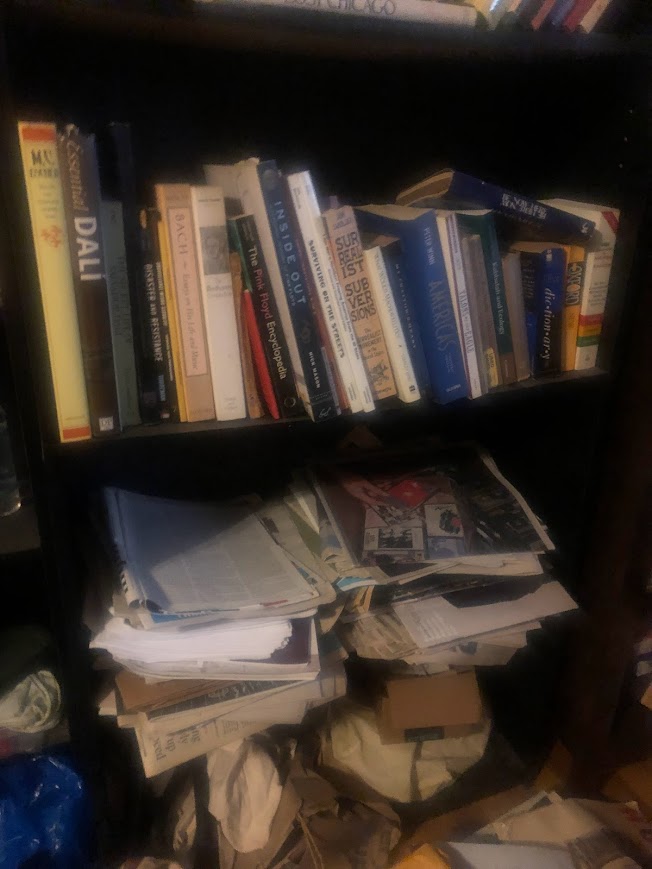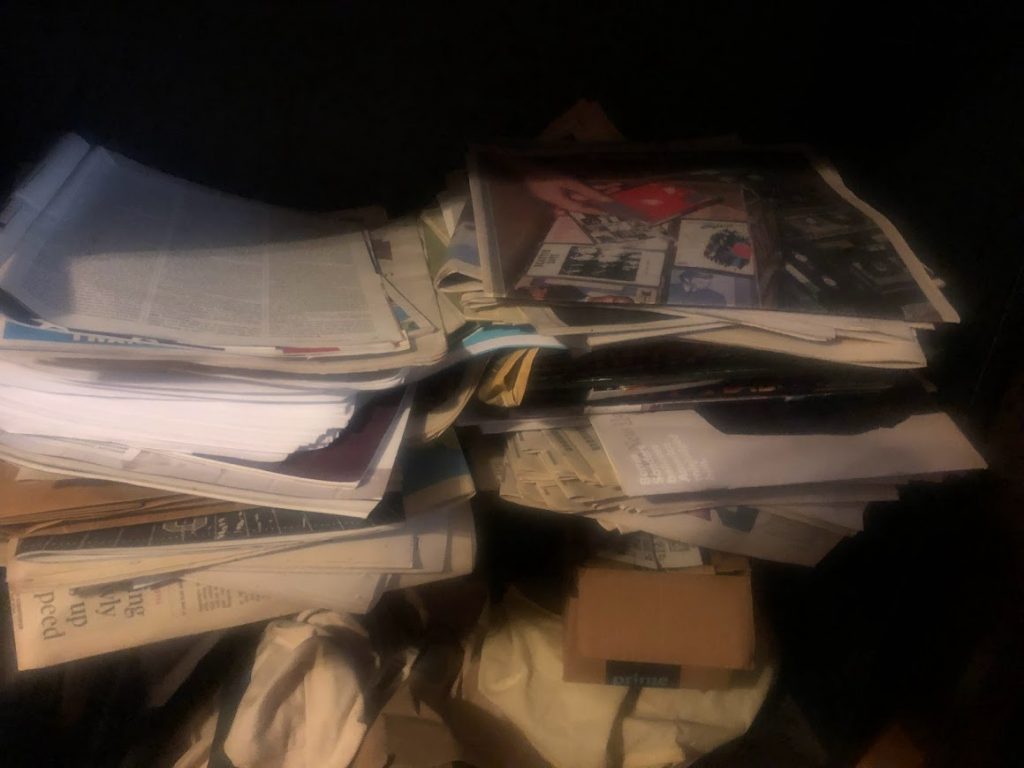One of the benefits of my Pedal People routes is that I encounter many customers who still subscribe to paper media. I regularly ‘harvest’ from their paper recycling bins magazines and newspapers, which I would never buy. (How is $60 a year a good deal?) Incredibly, many of these seem to be barely touched, like a household that seems to have an almost unopened New York Times Sunday edition every week. I don’t care about the news of course, since it’s already really out of date, and we get a free digital subscription. But I pull out the sections that aren’t time sensitive which would be fine to read whenever, like the magazine, arts section, and book review. I do this almost every week, but I don’t read them at this pace. And they seem to be piling up. I’ve thrown them all on one shelf on a bookcase, at least to keep them somewhere contained.

Ethan’s bookshelf, with the lower level filled with collected newspapers and magazines
What’s happening here? Why am I holding onto these, some of which are over half a year old? And I keep adding to the pile, even though I know I’m not keeping up? This seems to fall into the DSM 5’s diagnostics of hoarding: “The difficulty discarding possessions results in the accumulation of possessions that congest and clutter active living areas and substantially compromises their intended use. If living areas are uncluttered, it is only because of the interventions of third parties.” The only reason I really have them on this shelf is to minimize the amount my roommates may complain. Is my difficulty with getting rid of them based on my “perceived need to save the items and to distress associated with discarding them?” It’s not like I’m going to get to these eventually at this point.
In contrast to the DSM, Herring makes the argument that hoarding in this sense has a particular cultural history. For centuries meaning only gathering of wealth, hoarding as a concept that now seems commonsense emerged in the 1940s. Key to this is not just that many materials have been gathered, but they are disorganized. That brings our attention to what the assumed ‘proper’ form of order is, which is culturally specific, often bound with unacknowledged class and racial assumptions. Psychology takes over from there, equating a messy domestic interior with a messy psychological interiority. The ‘disorder’ in my house is assumed to be the result of a ‘disorder’ in my head.

I’m not sure if this is a lack of cleaning on my part. If anything, one could interpret it as a sign that I’m trying to clean. Everything is contained on this shelf. The papers are laid fairly neatly. And they’re even mostly organized reverse chronologically! (Although to be fair, that’s just because I keep placing the newer ones on the top of the pile.) So I’m inclined to think of this not as a mental disorder, as the DSM would have us believe, but as a social construction of this thing called hoarding, which as Herring showed has a specific historical origin, despite the DSM’s claim to universal science. But maybe I’m just trying to avoid admitting I have a problem (which is listed in the DSM!).
Regardless, I should probably check in with my roommates about what they think of my collection.


